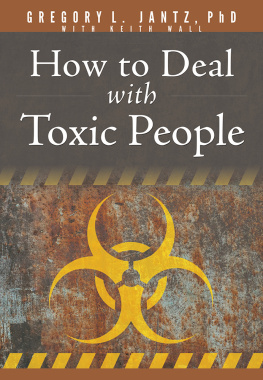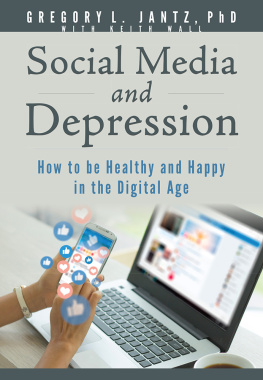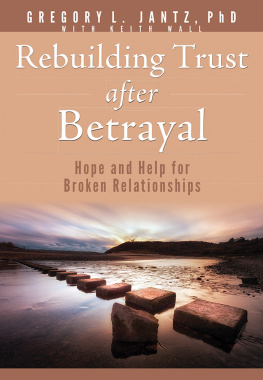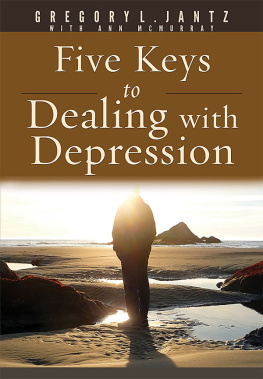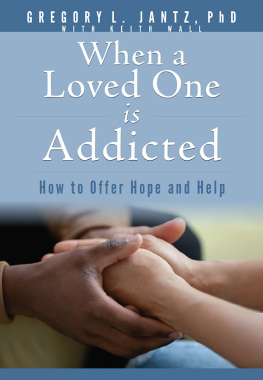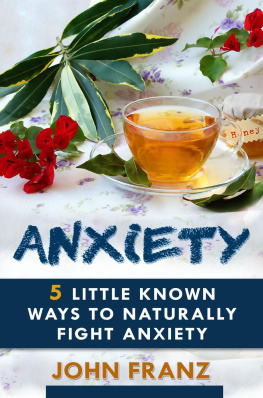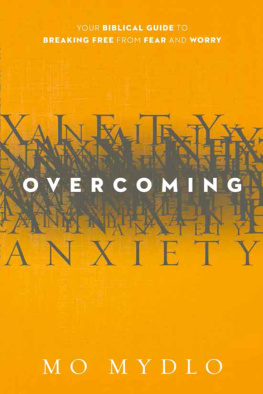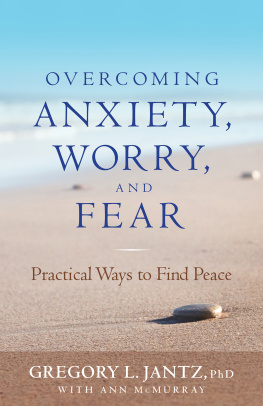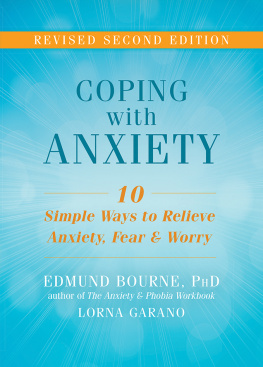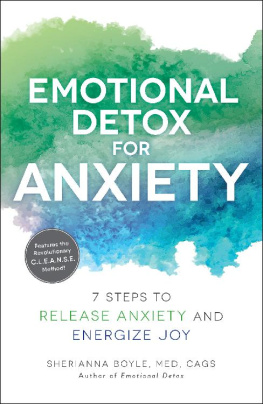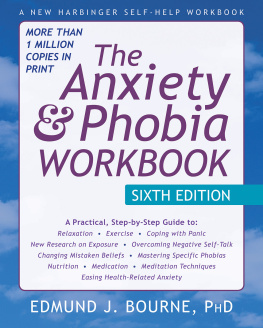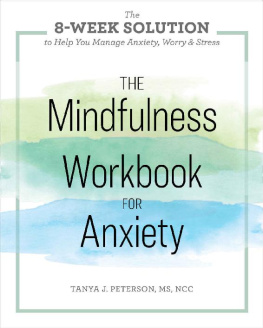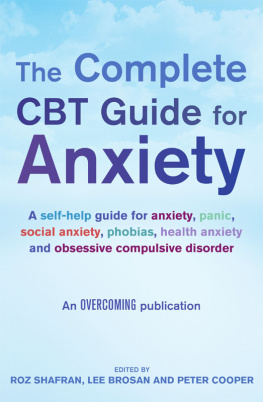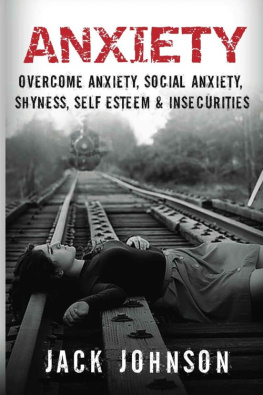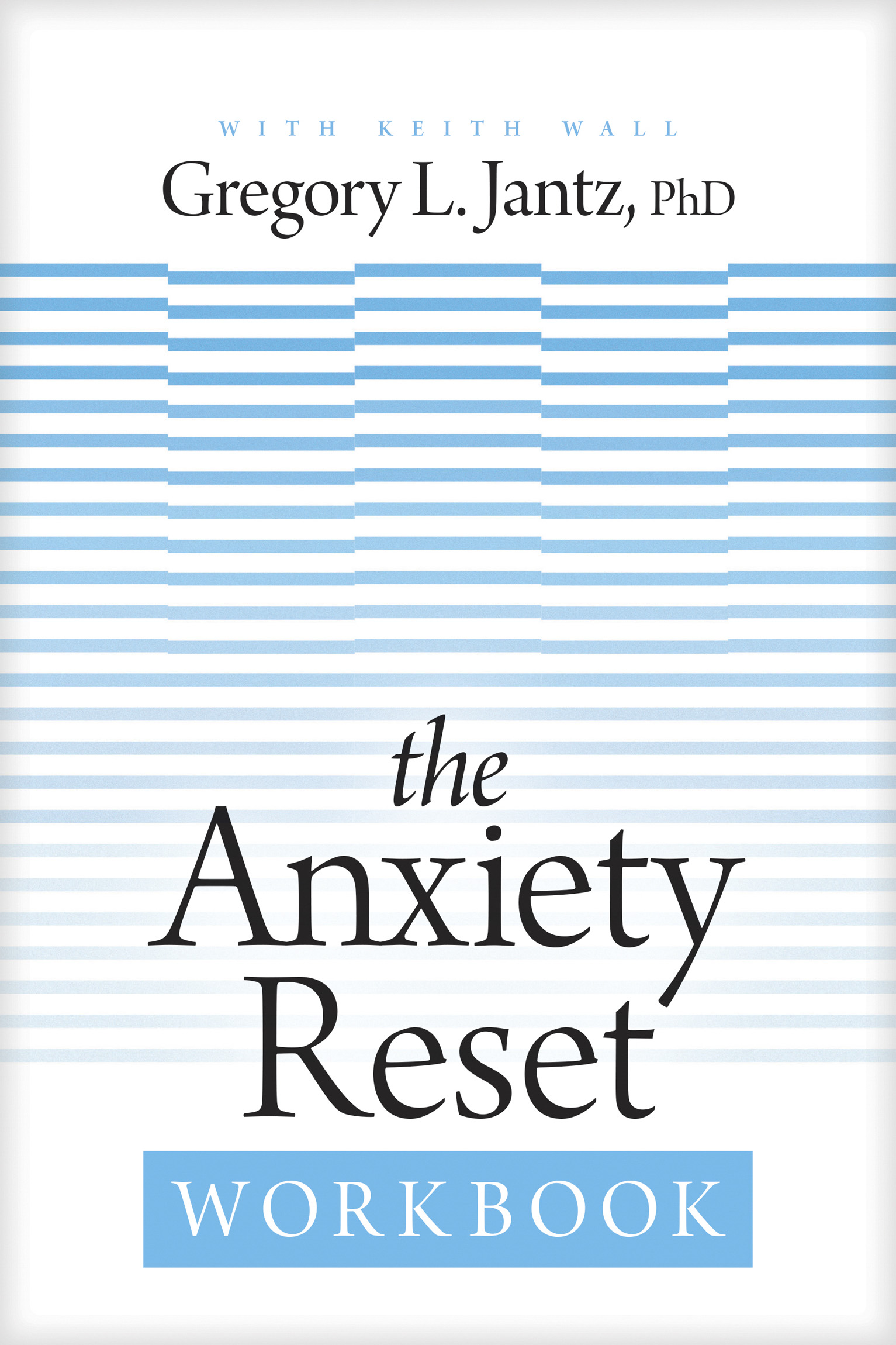Visit Tyndale online at tyndale.com.
Visit Tyndale Momentum online at tyndalemomentum.com.
TYNDALE, Tyndales quill logo, Tyndale Momentum, and the Tyndale Momentum logo are registered trademarks of Tyndale House Ministries. Tyndale Momentum is the nonfiction imprint of Tyndale House Publishers, Carol Stream, Illinois.
The Anxiety Reset Workbook
Copyright 2021 by Dr. Gregory Jantz. All rights reserved.
Cover illustration of lines by Libby Dykstra. Copyright Tyndale House Ministries. All rights reserved.
Designed by Libby Dykstra
Edited by Jonathan Schindler
Published in association with The Bindery Agency, www.TheBinderyAgency.com.
All Scripture quotations, unless otherwise indicated, are taken from the Holy Bible, New International Version, NIV. Copyright 1973, 1978, 1984, 2011 by Biblica, Inc. Used by permission. All rights reserved worldwide.
Scripture quotations marked ESV are from the ESV Bible (The Holy Bible, English Standard Version), copyright 2001 by Crossway, a publishing ministry of Good News Publishers. Used by permission. All rights reserved.
For information about special discounts for bulk purchases, please contact Tyndale House Publishers at , or call 1-800-323-9400.
ISBN 978-1-4964-4117-1
ISBN 978-1-4964-4119-5 (ePub); ISBN 978-1-4964-4118-8 (Kindle); ISBN 978-1-4964-4120-1 (Apple)
Build: 2021-01-12 08:49:57 EPUB 3.0
INTRODUCTION : A Path of Peace
I dont sleep at night because I cant turn off my racing brain.
I constantly worry about the future. Where will I end up? What will the world be like for my kids?
When people talk about peace of mind, I cant imagine what thats likeIm stressed out every day.
My anxiety is like a bag of bricks I drag around every day. Im weighed down by so many worries!
Sound familiar? Youve probably said things like this yourself or had similar thoughts slither around in your mind like a venomous snake.
Theres certainly a long list of things to feel anxious about: job security, tight finances, health concerns, political unrest, and relationship discordand feeling anxious in stressful situations is normal and hard to avoid. Most people feel anxious when starting a new job, enduring an audit from the IRS, or giving a speech. Who wouldnt?
But for increasing numbers of people, anxiety is a persistent burden, a debilitating presence that impacts performance and quality of life on a daily basis. In fact, social scientists have labeled our modern era The Age of Anxiety. With so much brainpower and creativity in our society, Im sure wed prefer to be known for living in the age of opportunity... or prosperity... or innovation. But the fact is, anxiety and anxiety disorders are on the rise.
A recent article in Medical News Today began by saying, For many, anxiety is an ever-present uninvited guest; in our circle of friends, among family members, and in communities at large. It seems to be rampaging through society like a noncontagious cognitive plague, forming a low-level hum that hides in the corners of our collective minds.
No one is immune to the havoc and hardship caused by unrelenting anxiety, and that includes people we consider to be successful, accomplished, and highly regarded. Anxiety does not just affect people struggling with unemployment, financial troubles, serious illness, or legal problems. Anxiety is an equal-opportunity troublemaker, laying siege to people across the economic, professional, religious, and age spectrum.
Living with anxiety, panic disorders, or phobias may cause people to feel that their lives are spiraling downward, robbing them of joy and contentment. It doesnt need to be this way! Throughout my book TheAnxiety Resetand in the pages of this companion workbookmy message has been consistent:
- Anxiety may not be avoidable, but it is manageable.
- Anxiety may be present in your life, but it does not have to dominate your life.
- Anxiety may temporarily cause you distress, but it does not have to constantly cause you despair.
Even in our furiously fast-paced and worrisome world, you can live a more peaceful, purposeful, and productive life. You can be free from thoughts, feelings, and habits that drag you down rather than lift you up. You can learn to draw the life-numbing poison out of your past pain, present problems, and future fear.
I am not giving you a pep talk or offering snappy slogans to help you feel better momentarily. The last thing you need is advice that rings hollow or bromides that promise much and deliver little. If youve been struggling with anxiety for any length of time, you have likely heard all kinds of recommendations that didnt bring you much improvement. Worse, youve probably heard plenty of clichs from well-meaning (but unhelpful) people: Just let it go... This too shall pass... Hold on to your faith.
As a matter of fact, I know that learning to manage anxiety takes patience, dogged determination, courage to confront painful issues, openness to new ideas, and a commitment to change long-standing patterns of behavior.
Another essential element is needed to overcome chronic anxiety: hope.
In my three decades as a mental health professional, I have counseled thousands of people who needed help coping with pain and fear of every kind: anxiety, depression, guilt, anger, addiction, and the emotional scars of physical and psychological abuse. Early in my career, I was often dismayed by the epic scope of battles people waged within themselves and the elusive struggle to achieve true healing. It seemed to me that lasting wellness was a treasure many seek but few ever find.
Then I realized something vital. Many of the hurting people I counseled were eageror desperateto overcome their troubles but lacked the key ingredient of hope. By the time these people began therapy with me or sought treatment at the clinic I direct, they had lived with their condition for so long and had tried so many unfruitful treatment options that optimism had all but vanished. Distress and anxiety, usually caused by a variety of factors, were compounded by a fundamental lack of hopefulness and confidence that anything would ever change.
This led me to make hope a cornerstone of all the therapy, speaking, writing, research, and treatment planning I do. In 2014, we changed the name of our Seattle-area treatment facility after clients said, This is a place of hope. Thats exactly what we wanted, and thus the name stuck. We are now called The Center: A Place of Hope. My team and I also adopted Jeremiah 29:11-14 as our clinics guiding Scripture passage:
I know the plans I have for you, declares the L ORD , plans to prosper you and not to harm you, plans to give you hope and a future. Then you will call on me and come and pray to me, and I will listen to you. You will seek me and find me when you seek me with all your heart. I will be found by you, declares the L ORD , and will bring you back from captivity.
I encourage you to reflect on these life-changing words and embrace them as your touchstone as you pursue your own emotional, spiritual, and physical wellness. After all, persistently anxious people often feel that they are in captivity of sortstrapped and immobilized by a force bigger than themselves. But God will indeed bring you back. Anxiety-ridden people often do not feel enthusiastic about the future, if they can envision one at all. But God will help you renew your dreams and refresh your energy to achieve them.


